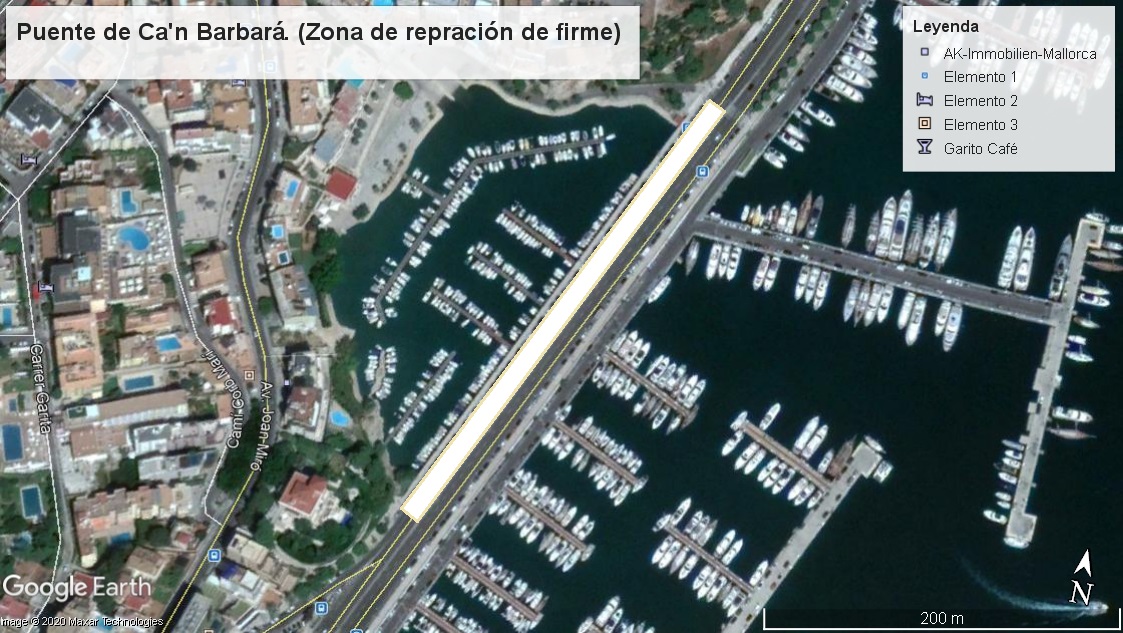

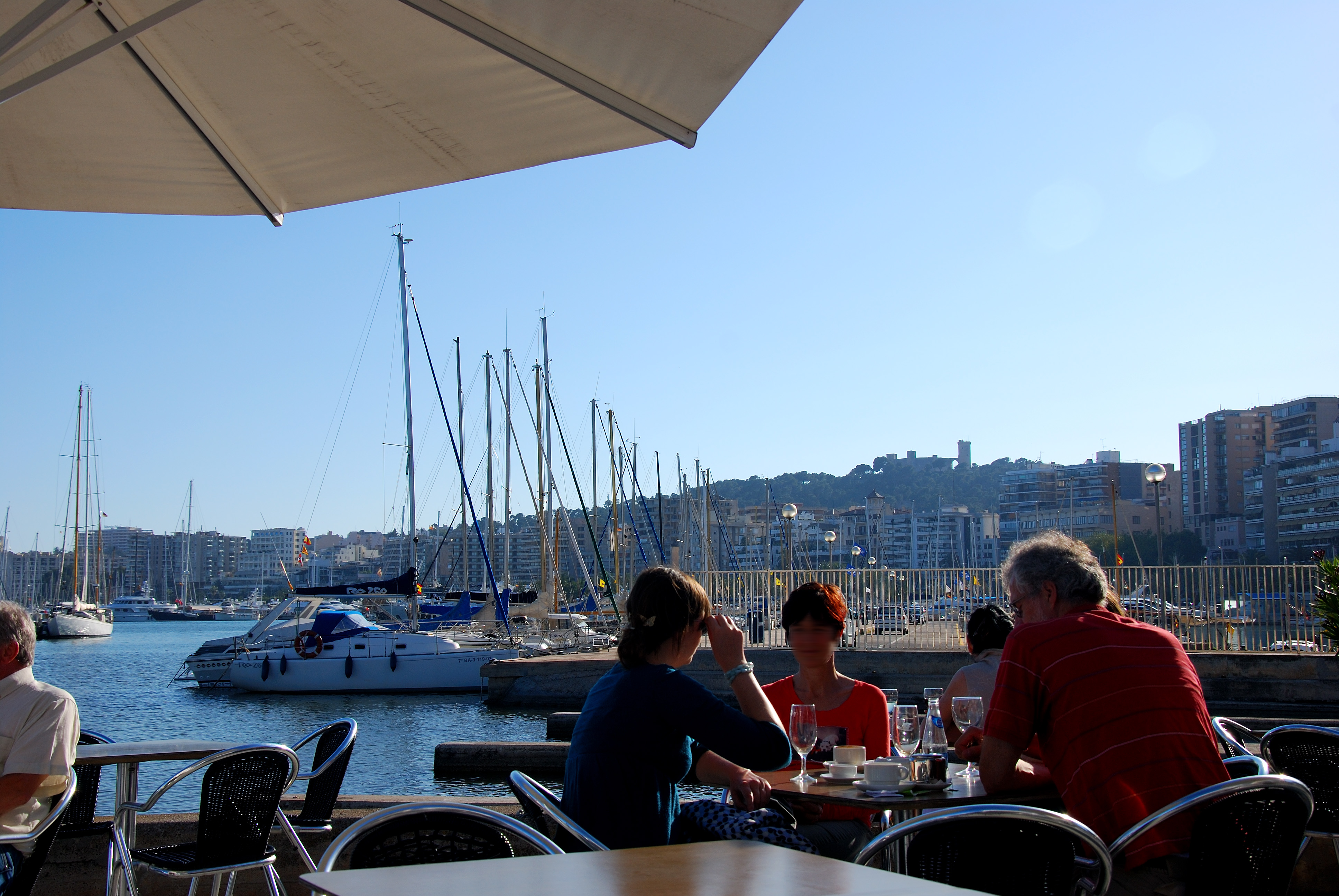
The Port Authority of the Balearic Islands suspends the occupancy and activity charges for its concessionaires and authorised companies
21/04/2020The Port Authority of the Balearic Islands (APB) has temporarily suspended the occupancy and activity charges normally paid by all of its concessionaires and authorised companies, while the state of alarm decreed by the Spanish Government to manage the health crisis caused by the COVID-19 is still in force. In addition, the APB has gone one step further and has automatically withdrawn the licences in force authorising the occupancy of public port land with tables and chairs for outdoor cafés and restaurants. This measure is especially targeted at businesses, such as this type of establishments, which are not allowed to open as a result of Spanish Royal Decree 463/2020, of 14 March, declaring the state of alarm. This advance, ex officio withdrawal of these licences means that, while the state of alarm lasts or their activities are not allowed to resume, these companies will not have to pay any fees. In a memorandum sent to its customers, the APB also pointed out that “even before the state of alarm was declared, the port authority had not invoiced any occupancy or activity charges for 2020, even though these charges are normally paid in advance”. This means that no concessionaire or authorised company has yet paid any amounts in this respect. Financial aid for companies In addition, the APB is already approving payment plans for concessionaires who are having difficulty making payments that were already due before the state of alarm was declared. These measures are being taken by the port authority in the five public ports it manages to "alleviate the difficult situation" that its concessionaires and authorised companies are going through. In addition to these measures that the APB is already implementing, such as the temporary suspension of the payment of port charges, the approval of payment plans, the advance withdrawal of licences to use public port land for outdoor cafés and restaurants, other measures adopted by the Central Government may be taken to help ports in the light of the crisis caused by the Covid-19 virus.
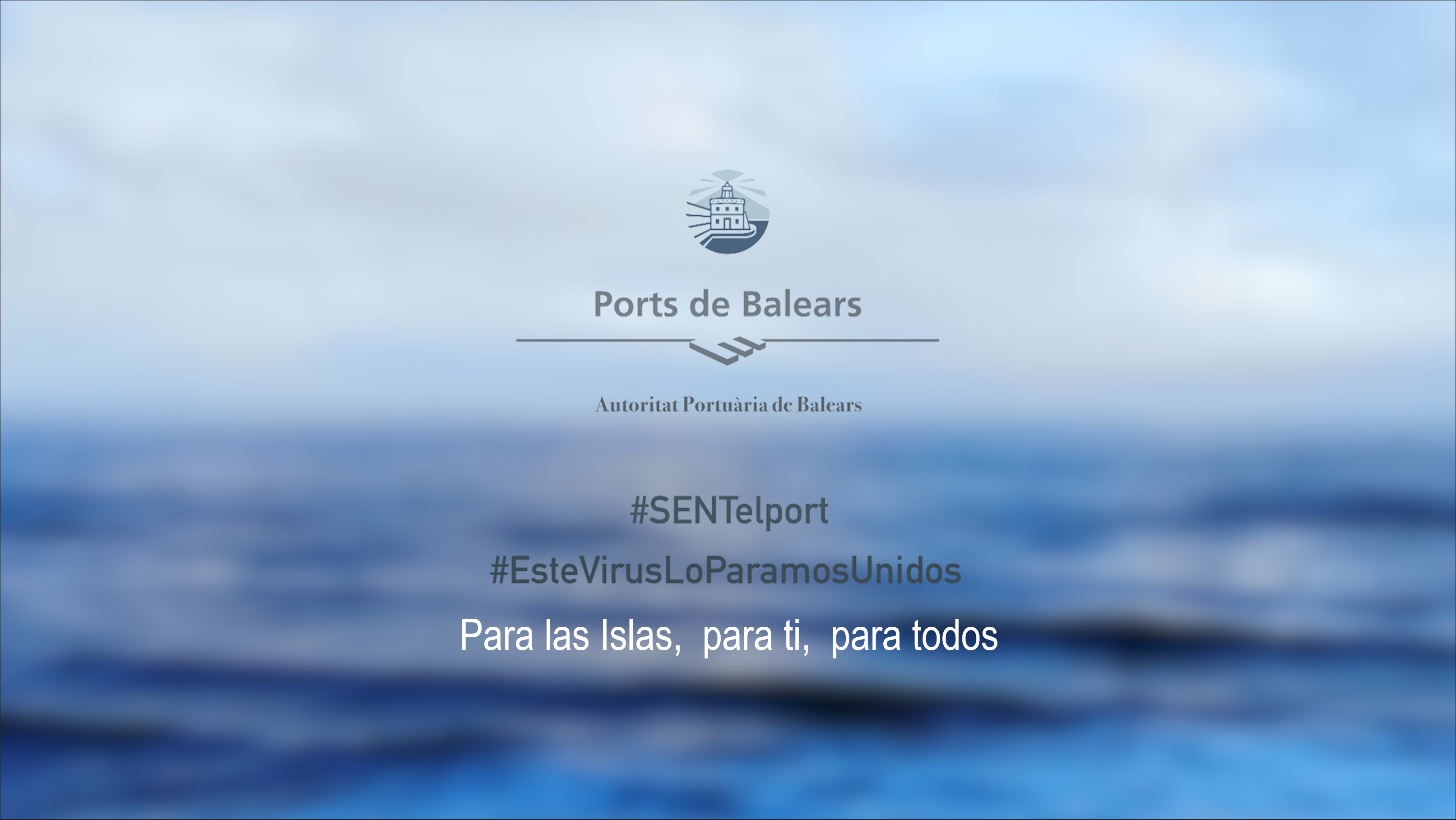
The Port Authority of the Balearic Islands thanks the islands’ inhabitants for staying at home while its ports and lighthouses operate to guarantee supplies
15/04/2020The Port Authority of the Balearic Islands (APB) would like to thank the islands’ inhabitants for staying at home in an attempt to stop the spread of the Covid-19 virus. The APB has paid its tribute in a video that reminds us that the islands' ports and lighthouses continue to operate to ensure basic supplies. Thus, the APB acknowledges the efforts people are making to stay at home. The inhabitants, in turn, are safe in the knowledge that they are being supplied with all the essential products they need, such as food, medicines and other basic commodities. The video, entitled "For the Islands, For You, For Everyone", also recognises the essential role played by the ports and lighthouses in this crisis, as well as the ongoing dedication of the port community, such as shipping companies, hauliers, stevedoring and mooring services, pilots, government officials and fishermen, in ensuring supplies for the islands' inhabitants. The APB has sent 42% of its staff to work from home, in addition to establishing minimum services and setting up rapid response teams to ensure that the five public ports of Palma, Alcudia, Mahon, Ibiza and La Savina are managed efficiently, as they are an essential part of the logistics chain for supplying the Balearic Islands’ population.

The APB guarantees two-week supplier payment terms
07/04/2020The Port Authority of the Balearic Islands (APB) maintains its two-week supplier payment terms, thus continuing to operate as it did before the Spanish Government declared the ‘state of alarm’ on 14 March. In this sense, the APB commits to speeding up payments to its suppliers for their services and products in order to ensure cash flow for the companies that work with it. All invoicing with the APB is processed electronically. To this end, the different organisational units involved in the payment of invoices are making an additional effort in the light of the social distancing measures decreed by the Government. In this sense, the Information Systems and ICT Infrastructure Division has set up 136 computers in the homes of APB staff to enable remote port management, which means that more than 40 per cent of the staff are now telecommuting. The Procurement Division ensures the electronic processing of delivery notes and certifications of the work carried out through the Tendering Portal, while the Economic and Finance Department is giving priority to speeding up payments to suppliers.
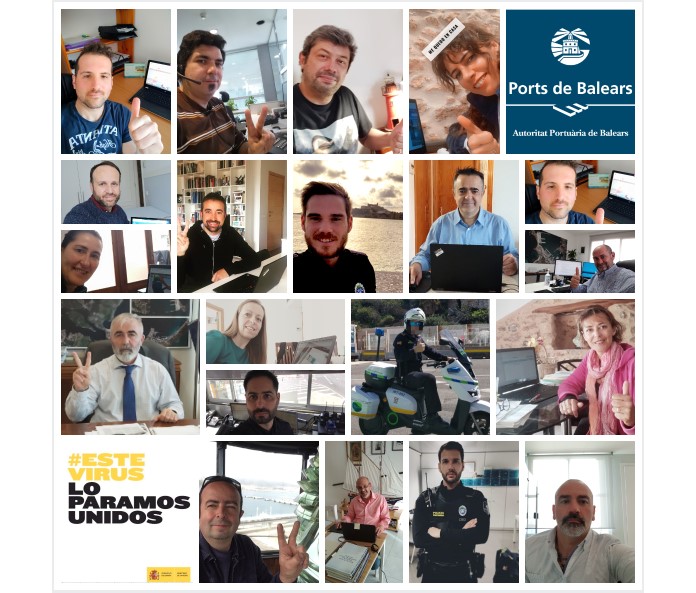
The APB moves more than 40% of its workforce to telecommuting in the first week of the ‘state of alarm’
31/03/2020The Port Authority of the Balearic Islands (APB) has moved 42% of its workforce to telecommuting within the first week of the ‘state of alarm’ declared by the Spanish Government in response to the health crisis brought about by the COVID-19 virus. Within the first seven days following 14 March, the APB’s Information Systems and ICT Infrastructure Division set up 136 computer systems to enable remote port management and thus comply with the stay at home measures laid down by the Government. “It has been a resounding success thanks to the Systems team,” says its head, Javier Segovia. “There was no telecommuting culture at the APB and we had never needed to roll out the technological infrastructure required for it.” This unprecedented technological deployment has been undertaken in partnership with Spanish consulting firm Ozona Tecnología and has ensured uninterrupted delivery of critical services and strategic infrastructures in the public ports managed by the APB. The APB’s average headcount is 324 people, 40% of them office workers. Practically all of these staff along with personnel in the Port Police service and Maintenance department have been provided with computer equipment so they can work from home. All of the APB’s organisational units, including Human Resources, Public Port Land, Secretariat and Legal Affairs, Procurement, Economic and Finance, Infrastructures, Port Operations and Services, Environment, Planning and the Port Police Control Centre, are continuing to do essential work for the operation of the ports remotely from their staff’s homes. Electronic management The APB’s e-Office is the contact point between the public body and its customers and users through the website www.portsdebalears.com. Maintenance and maritime signals personnel are at home and can be called out if they are needed on public port land. Minimum essential services are also being provided by the Port Police. All of this means the APB can keep running its five public ports in Palma, Alcudia, Mahon, Ibiza and La Savina which are an essential link in the logistics chain to ensure supplies reach the people living on the Balearic Islands.

The APB disinfects vehicles used for essential port services with ozone
30/03/2020The Port Authority of the Balearic Islands (APB) has bought six portable ozone generators to disinfect its official vehicles used for essential port services such as port police patrol cars and maritime signals and maintenance vans. The ozone generators are put inside the vehicles at the end of each shift and switched on for a few minutes to ensure thorough disinfection. They are also being used to disinfect port access control booths, control centres and communal areas and rooms. Ozone is an extremely efficient disinfectant and its use is recommended by the World Health Organisation in the fight against the spread of COVID-19. The APB has bought six portable ozone blasting units from Accuaria for nearly €6,000 and has deployed them around the public ports of Palma, Alcudia, Mahon, Ibiza and La Savina.

Understanding in principle with Formentera Council to update the Port of La Savina fire brigade agreement
26/03/2020The Board of Directors of the Port Authority of the Balearic Islands (APB) has this week approved the update to its agreement with Formentera Island Council on fire prevention, fire-fighting, sea rescue and civil defence in the Port of La Savina. In response to the changes brought in by Spanish Law 40/2015 on agreements involving government and public agencies, the APB and Formentera Island Council have decided to update their agreement under which the Formentera Fire Brigade operates as an APB incident response team under its command on public port land in the Port of La Savina. In return the APB will contribute €24,000 per year, a figure which will go up by €1,000 annually over the four years of the agreement. This funding will be used to provide training and buy specific equipment for the Formentera Fire Brigade. Following the understanding in principle endorsed this week by the APB’s Board of Directors, the proposal for the agreement is to be forwarded to the Ministry of Finance for its approval. It will then have to be signed by the APB and Formentera Island Council and will come into force once it has been registered in the Electronic Register of Cooperation Agencies and Instruments and published in Spain’s Official State Gazette. Close partnership In 2018, the APB gave Formentera Island Council a small fire engine worth €191,000 in addition to laying on specific training for the Formentera Fire Brigade in operations in ports and buying specialised equipment. This new measure is part of the APB’s strategy of signing agreements with the island councils to enhance their fire-fighting resources and make port facilities as safe as possible.
THE APB PORTS GUARANTEE THE PROVISION OF SUPPLIES TO THE LOCAL POPULATION AND THE ADMINISTRATIVE PROCEDURES WITH PORT USERS
17/03/2020The public-owned ports managed by the Port Authority of the Balearic Islands (APB) continue to operate in order to guarantee the supply of goods to the inhabitants of the Autonomous Region of the Balearic Islands and to manage administrative procedures with their users and clients. In this sense, the APB management has implemented several organisational measures in accordance with the Spanish Royal Decree 463/2020, of 14 March, aimed at providing the necessary services to society that the Spanish Ports Law "grants us and demands of us". These measures include the essential basic services that must be provided by the Port Police in the five public-owned ports on the islands: Palma, Alcudia, Mahon, Ibiza and La Savina. The majority of the remaining employees have been allowed to work from home, except for those who are essential to port operations. The E-Office website reminds users that the terms and deadlines for processing procedures by public-sector entities have been suspended, and users are advised to contact the APB through online channels or by telephone.
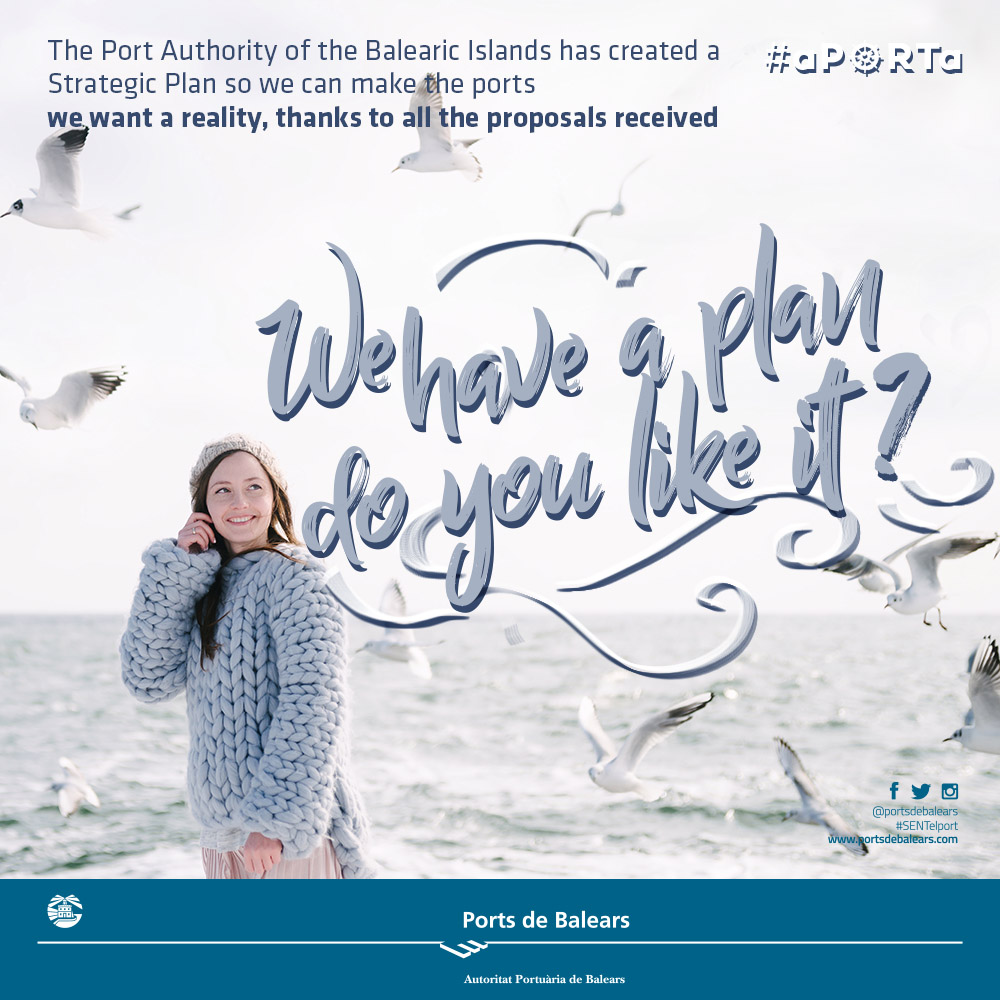
APB’s Strategic Plan enters the final stage of the process and is now open to input from the public
13/02/2020The Port Authority of the Balearic Islands (APB) is in the process of drawing up its Strategic Plan for the five public ports (Palma, Alcudia, Mahon, Ibiza and la Savina) and maritime signals (34 lighthouses and over 25 beacons) it manages. The Plan has a 5-10 year timeframe and will be included in the State-owned Port System’s Institutional and Strategic Framework planning system. This Plan addresses the role to be played by the infrastructures which deliver critical services for shipping connections and the supply of the islands. They are also used for significant tourism and socioeconomic operations in the cruise industry and recreational sailing sector, including industrial operations (repair and maintenance), and to a lesser extent fishing. This Plan’s purpose is to set out future strategies for these ports by reconciling the diverse viewpoints in the society which they serve and should continue to serve. To that end, the APB will take into account all the key socioeconomic, technological, environmental and other factors which may have an impact while always seeking to promote the general interest. The APB’s intention with the Plan is to improve service quality and efficiency in its ports while maintaining their current self-financing capacity and respecting their valuable environment (both natural and urban) with sufficient foresight to successfully address the challenges of the immediate future. Public input Following Stage I of the work carried out in 2018 and 2019, the results and conclusions of the preliminary analysis and assessment were compiled in documents and presented to the main stakeholders on each of the islands. Alongside the numerous interviews and meetings held with the port community, an electronic communication channel was set up and publicised on the website and in social media which has made it possible to report on the progress of the work and welcome input from all stakeholders. Following the discussion and contributions received, Stage II, in which the Plan has been drawn up, is now nearing completion with the design and deployment of the Strategy of the APB and each of its ports (and maritime signals). The APB is making the main or more general strategy design and deployment documents publically available so it can hear the whole range of views, responses, suggestions and approaches. It is confident that this consultation will generate fresh discussion and thus further enhance the Plan. The APB would like to thank you in advance for your comments, remarks and input. Please email them to planestrategico@portsdebalears.com by 9 March 2020 so that they can be considered before the Strategic Plan’s final version is completed.
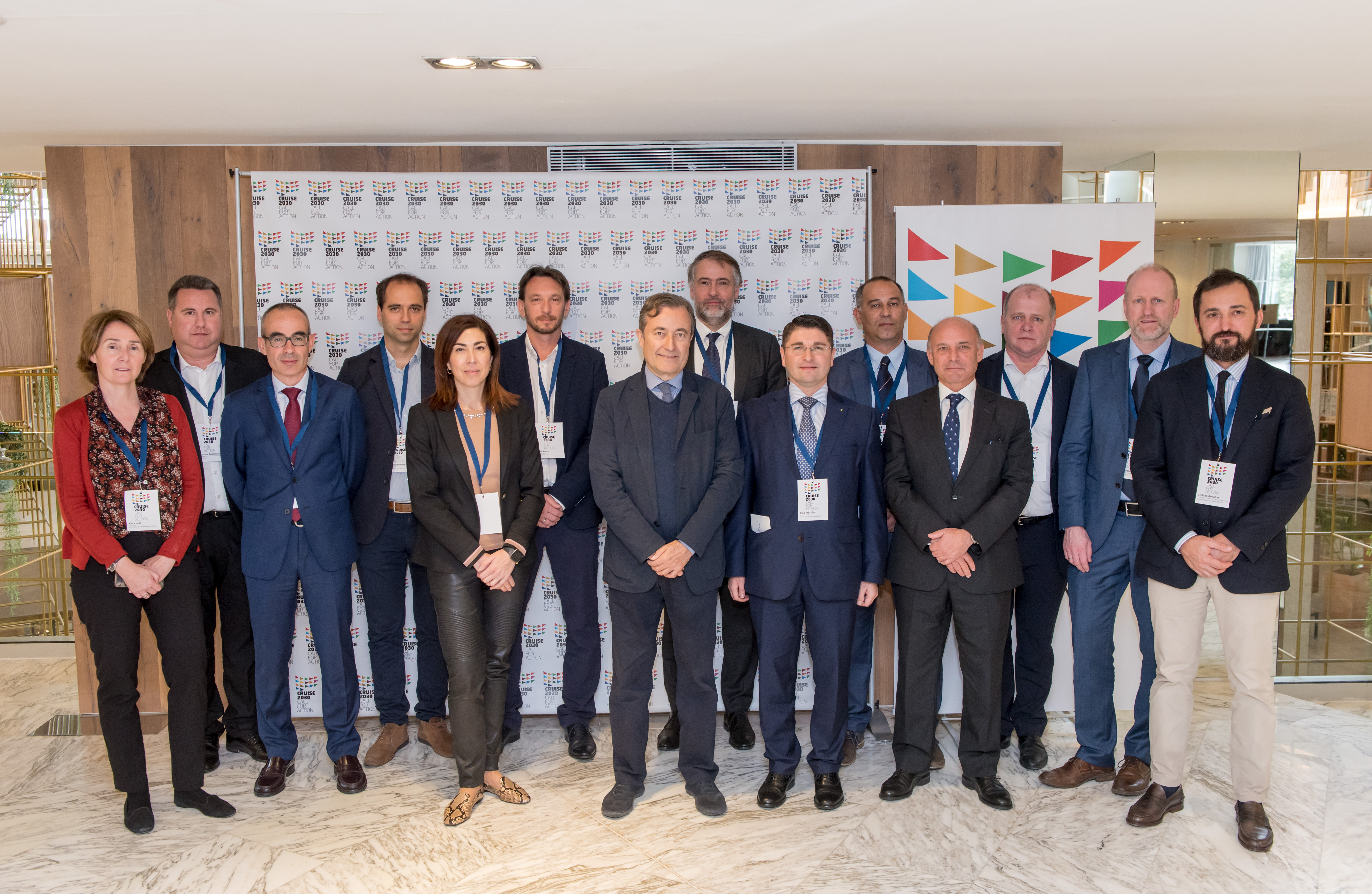
The Cruise 2030 Working Group commits to finding the best possible balance for ports, destinations, and cruise companies, to guarantee the future of the cruise industry in Europe. The next meeting will be held in Cannes in June 2020
07/02/2020Following on from the inaugural meeting held in Venice last October, today the Cruise 2030 Working Group met in Palma de Mallorca. Delegations from eight of Europe’s main cruise destinations, including Amsterdam, Bergen, Cannes, Dubrovnik, Malaga, Marseille, Palma de Mallorca, and Venice met to formalise their support for the "CRUISE 2030 CALL FOR ACTION" initiative promoted by the Port of Venice. The Cruise 2030 Working Group agreed collectively, that the main objective of the "CRUISE 2030 CALL FOR ACTION" must be to define common strategies whereby each port can find ways to support sustainable development of the cruise industry within their regions, whilst taking into account the needs not only of the cruise industry, but also the environment, and the port itself. Today's session presented the conclusions of the study Towards a New Balance for Ports, Destinations, and the Cruise Industry. This study was conducted by the North Adriatic Sea Port Authority, with outcomes based on analysis carried out in eight different European ports. The study, which highlights the growth of cruise tourism in recent years, within the global context of the general increase in tourism worldwide, recognises that there may be non-positive consequences on a local level, such as environmental impact, and pressure caused by large numbers of tourists to the destination and historical centres, and acknowledges the future of the cruise industry depends on its ability to find a way to guarantee the best possible balance for destinations, ports, and cruise companies. Many topics were discussed, the most significant points being: Delivery of economic initiatives which outline suggestions for cruise companies to enable reductions to environmental impact at individual ports. Some of the environmental measures adopted by port authorities include favoring onshore power supply, 0.1% SOx, LNG fuel, closed-loop scrubbers, involvement of the whole tourism chain, reducing speed of ships and local compensation for the environmental footprint. Decision to postpone the inclusion of new international ports in the Cruise 2030 Working Group. · The main aim, in the long run, is to define the standards of a sustainable cruise industry, which takes into account all the different needs of the various stakeholders involved. Particular attention to be given to the needs of the ports, and even more to their surroundings. Eventually, defining and adopting the standards of a vessel-type, a Europax class, with specific characteristics matching the features of European ports. · Broad cooperation requires interaction and discussion with local authorities (municipalities, provinces, and regions) in order to define a clear path towards a sustainable industry, in a framework to govern the policy as a destination, rather than among individual institutional stakeholders. The next meeting is scheduled for next June 2020 and will be hosted and organised by the port of Cannes. The Cruise 2030 call for action is a working group of 8 of the main cruise ports in Europe, including Amsterdam, Bergen, Cannes, Dubrovnik, Malaga, Marseille Fos, Palma de Mallorca, and Venice. The initiative was proposed by the Port of Venice and launched in October 2019, to start to operate on finding ways to help shaping the cruise industry of the future. Indeed, the Cruise 2030 call for action means to delineate a common platform of customized strategies to support the development of the cruise industry in a sustainable manner, with the aim of matching more the needs of the industry with the demands of the Cities and territories. As a think tank basing its analysis on scientific facts and studies, the Cruise 2030 ports mean to elaborate a set of strategies and to play their key-active role to launch a new and more significant dialogue with the main actors of the cruise industry at an institutional and economic level, as to trace a new policy for the future of cruise ports.
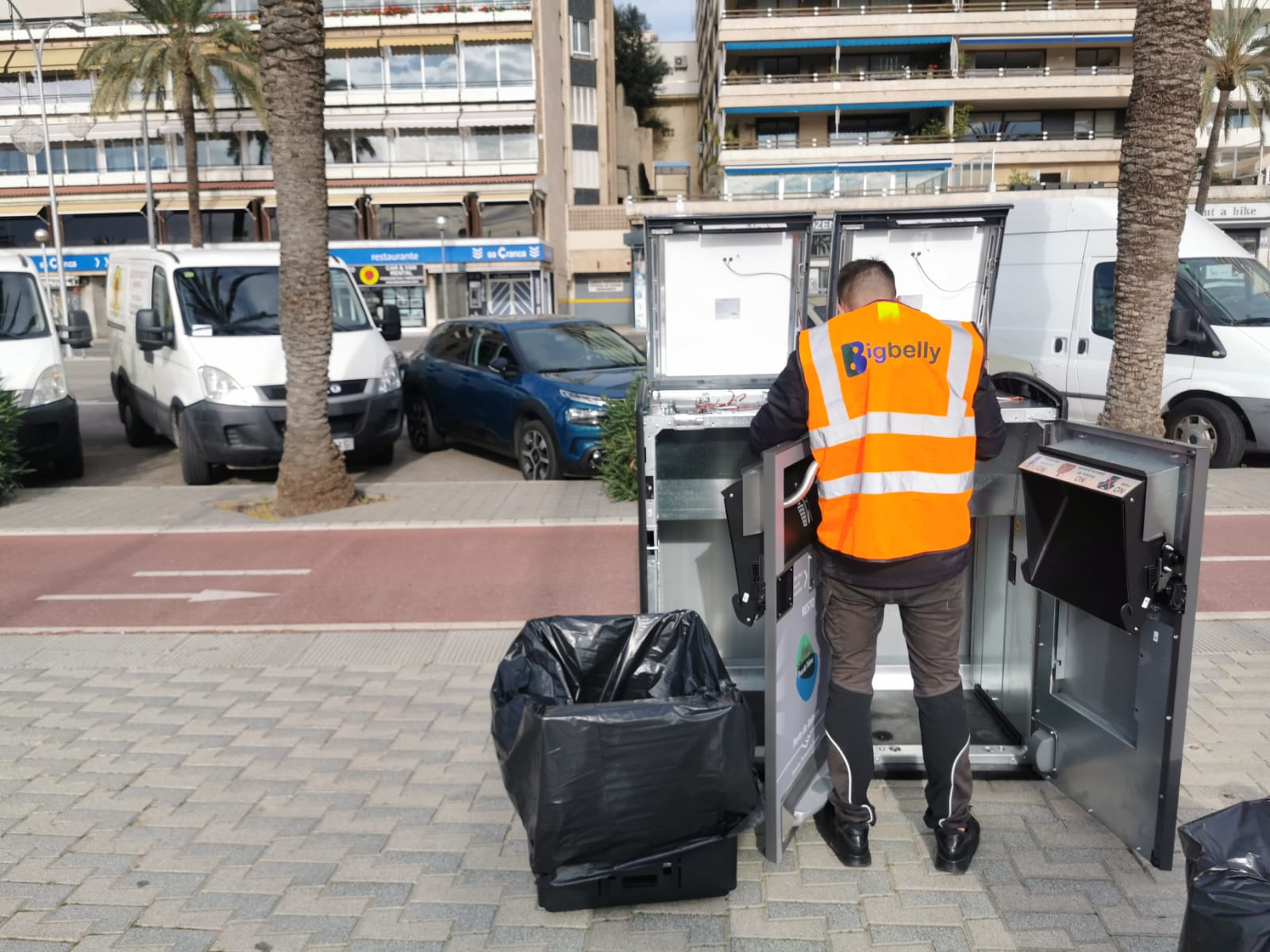
The Port of Palma puts twelve solar-powered compacting bins on its seafront promenade in a pilot environmental scheme
06/02/2020The Port Authority of the Balearic Islands (APB) has installed twelve solar-powered compacting bins in the Port of Palma as part of a technological innovation pilot scheme designed to make waste management more efficient. The bins allow for separate collection of light packaging, municipal solid waste, paper and cardboard. The Bigbelly smart bins run on solar panels and have a built-in GPS and sensors which report in real time when they are full. This makes it easier for the cleaning crew to collect them. The bins are also fitted with a waste compactor which has a capacity eight times greater than a traditional bin, storing between 600 and 800 litres of waste. One of the added values and reasons why APB has decided to install this new system is using clean energy. The smart bins are exclusively solar powered and with only eight hours of daylight they can run at full capacity for a month. The twelve bins have been placed along the Palma seafront promenade by Future Street España based on pedestrian flows and bearing in mind that these bins are the ones most commonly used by the general public. This means the results can be evaluated in potentially strategic locations. The initiative is to last six months and has a cost of €5,000. The APB is continuing to move forward in improving the cleanliness of its ports following sustainability principles and using environmental initiatives which have already been rolled out in other cities such as Dublin, Berlin, New York, Dubai, London, Paris and Madrid.
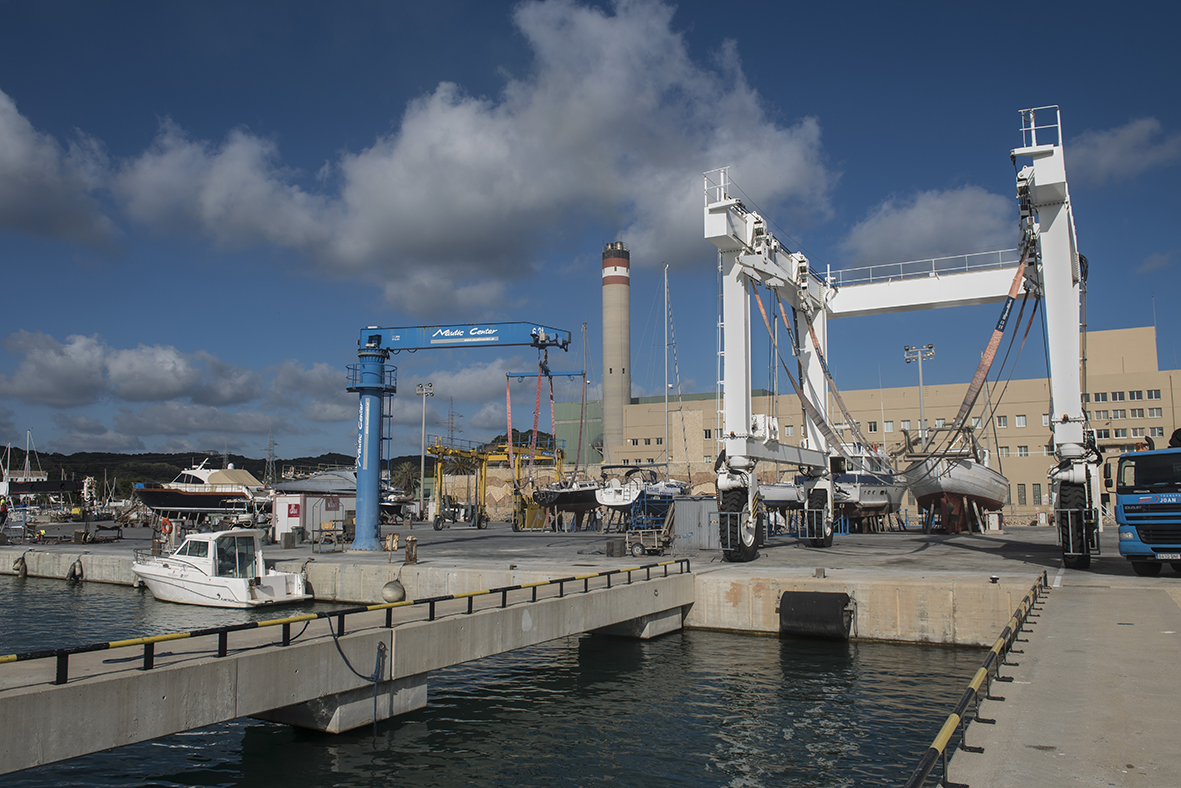
Med Sea Yacht Services to run the Cós Nou dry dock in the Port of Mahon
02/01/2020The Board of Directors of the Port Authority of the Balearic Islands (APB) has this afternoon selected the bid submitted by Med Sea Yacht Services, SL, as the most advantageous of the ones presented in the public tender to run the Cós Nou dry dock in the Port of Mahon for the next 23 years. Med Sea Yacht Services will manage a total of 35,000 square metres of public port area, of which 29,000 square metres are land and the rest water. The lease charge plus improvements comes to some €200,000 per year while the operations charge will be 4% of turnover. The main services to be provided by the dry dock concessionaire will be lifting and launching vessels, their supervision and custody, cleaning hulls and descaling carried out by its own staff, and running the moorings set aside for repairs. It will also have a fuel supply point, premises and offices for letting to other businesses and a dry marina for around 150 boats no more than ten metres in length. In addition, it will allow owners of vessels up to eight metres long to use the dry dock slipway. Open dry dock Med Sea Yacht Services will be required to provide these and other services included in the contract operating on an exclusive basis. However, any APB-authorised company may carry out repair and maintenance work on vessels within the concession, albeit not on an exclusive basis as the concessionaire can also do this type of work. In other words, the concessionaire will only have exclusivity in providing the commercial services covered by the concession contract and maximum tariffs will also be set for these services.






